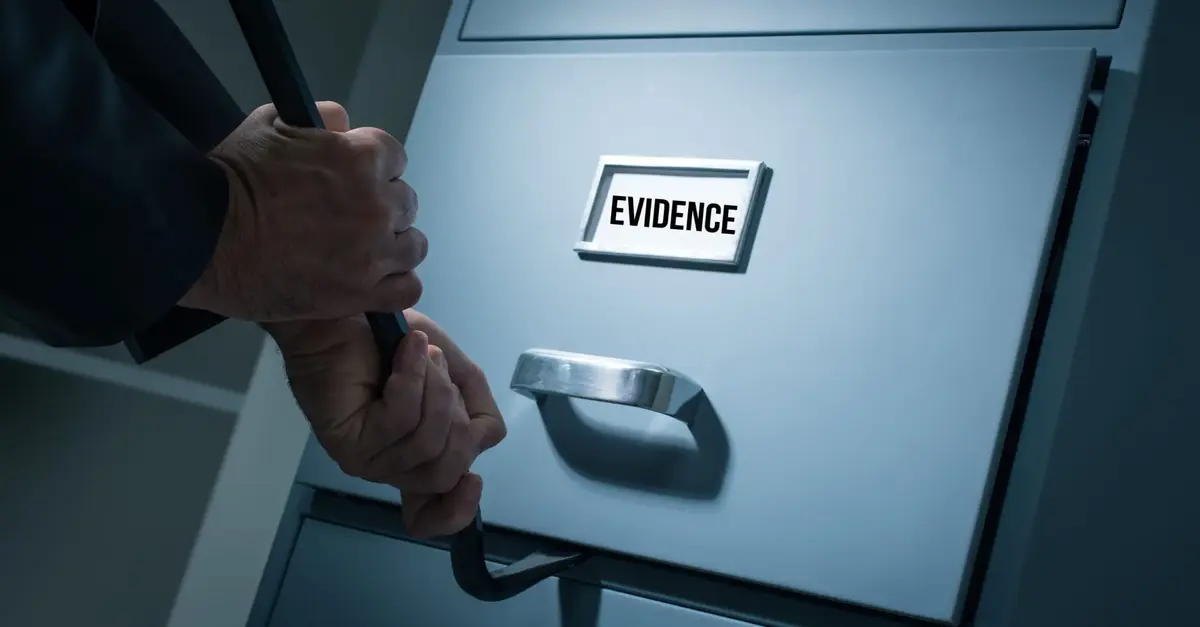Case Name : ANTONY RAJU V STATE OF KERALA & ANR
Case No: SLP(Crl.) No.4887/2024
DATED : 20th November, 2024
QUORUM: C. T. Ravikumar and Sanjay Karol End
Facts of the Case
The case relates to the year 1990 when one Andrew Salvatore who happens to be an Australian citizen was arrested at the airport in Thiruvananthapuram with charas. After that incident, during the pendency of judicial proceedings, even material evidence in the form of undergarments used to conceal drugs, was also tampered with. In the year 1991, the Kerala High Court noticed possible tampering and further inquiry was ordered.
This led to an FIR in 1994 accusing court officials and Advocate Antony Raju of falsifying the evidence to acquit Salvatore. Decades later, the High Court dismissed these proceedings on the grounds of procedural bars under Section 195(1)(b) Cr.P.C., thereby raising appeals to the Supreme Court.
Issue of the Case
- Whether the petitioners, Mr. R. Ajayan have locus to challenge the order of the High Court?
- Was the High Court correct in its ordering of quashing of the proceedings on the basis of procedural bar under Section 195(1)(b) Cr.P.C.?
- Could it lawfully order de novo proceedings?
Legal Provisions
- Narcotic Drugs and Psychotropic Substances Act, 1985
Section 20(b)(ii): Punishment for some drugs.
- Indian Penal Code, 1860
Section 120B. Criminal Conspiracy.
Section 193. Manufacturing evidence.
Section 201: Causing disappearance of evidence.
Section 420: Cheating.
- The Code of Criminal Procedure, 1973 (CrPC):
Section 195(1)(b): Bar on prosecution without a court’s complaint.
Section 482: Inherent powers of the High Court.
Arguments of Appellant
Appellant before us was M.R. Ajayan. He submitted that gross error existed in the quashing order of the High Court and the proceedings because allegations involved giving forged judicial evidence. In fact, he is a socially spirited editor of “Green Kerala News”. Such acts, he emphasized, brought rot into the very fabric of the public trust that judiciary must enjoy and further eroded the principles of justice.
He submitted that this was a natural right to protect the purity as well as impartiality of judicial proceedings. Moreover, he submits, the procedural bar provided in Section 195 (1) (b) Cr.P.C. is not applicable to this case as it was a judicial order that had started the proceeding. He prayed for restoration of charges and he was afforded with an opportunity of having a fair open trial to wash away such serious allegations against him.
Arguments of Respondent
Adv. Antony Raju, respondent submits that the whole exercise was not sustainable in law since the matter squarely fell within the procedural bar of Section 195(1)(b) of the Cr.P.C, wherein written complaint by the concerned court was necessary for taking cognizance of certain offenses. He insists that FIR and the chargesheet thereafter were ordered on administrative requirement and not on judicial dictation.
He submitted that the judgment of quashing the proceedings by the High Court was well warranted, legally proper, and that the direction to take de novo steps by the High Court were a deviation from the procedural niceties and amounted to unwarranted harassment. He further submitted that the judgment of the High Court must be held good as there is no direct evidence against him in respect of the tampering with the material object.
Legal Analysis
The after-effect of a judicial order is an FIR. That judicial evidence tampering said to be the sort that would “erode public confidence”, therefore requiring close scrutiny. The High Court wanted justice to be delivered in this case by way of an order for de novo proceedings but its approach for retrial in exceptional circumstances lacked legal footing.
JUDGEMENT
It confirmed the judgment of the High Court which had set aside the order quashing criminal proceedings and restored the charge for trial. It further clarified that M.R. Ajayan, a socially alert individual and having locus standi in the matter, could well challenge the quashing of the proceedings since allegations about the tampering of judicial evidence raised very grave questions regarding the integrity of the judicial system.
It explained that the bar under Section 195(1)(b) of the Cr.P.C stands excluded in as much as the complaint was filed on the basis of a judicial mandate and not on a private complaint. It condemned the approach by the High Court with an incorrect distinction between orders judicial and administrative and thrust public interest in addressing the alleged tampering which intrudes on judicial independence and public confidence. In the case of Andhra Pradesh State Road Transport Corpn, the Supreme Court held it permissible in exceptional circumstances for reasons of seriousness of allegations and administration of justice. In this scenario, the Court restored the trial and ordered it to be completed within a year and ordered the accused to appear before the trial court on December 20, 2024. He accepted the appeal of Ajayan and dismissed the appeal by co-accused Antony Raju so that the attention was brought towards the import of the protection of judicial processes and accountability for acts which adversely affect justice.
Conclusion
It thereby ensured procedural safeguards in no way would hinder justice. The court reiterates judicial process must not suffer or be obscure. It said any interference with integrity of the evidence must face strict scrutiny and accountability. This judgment heralds restoration of primacy of justice while still giving clear directions to prevent undue delay.
“PRIME LEGAL is a full-service law firm that has won a National Award and has more than 20 years of experience in an array of sectors and practice areas. Prime legal falls into the category of best law firm, best lawyer, best family lawyer, best divorce lawyer, best divorce law firm, best criminal lawyer, best criminal law firm, best consumer lawyer, best civil lawyer.”
WRITTEN BY RICHA PANDEY


